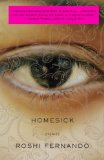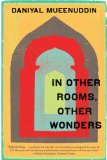Summary | Excerpt | Reading Guide | Reviews | Beyond the book | Read-Alikes | Genres & Themes | Author Bio

A Novel
by Ayad AkhtarAmerican Dervish is a brilliantly written, nuanced, and emotionally forceful look inside the interplay of religion and modern life.
Hayat Shah is a young American in love for the first time. His normal life of school, baseball, and video games had previously been distinguished only by his Pakistani heritage and by the frequent chill between his parents, who fight over things he is too young to understand. Then Mina arrives, and everything changes.
Mina is Hayat's mother's oldest friend from Pakistan. She is independent, beautiful and intelligent, and arrives on the Shah's doorstep when her disastrous marriage in Pakistan disintegrates. Even Hayat's skeptical father can't deny the liveliness and happiness that accompanies Mina into their home. Her deep spirituality brings the family's Muslim faith to life in a way that resonates with Hayat as nothing has before. Studying the Quran by Mina's side and basking in the glow of her attention, he feels an entirely new purpose mingled with a growing infatuation for his teacher.
When Mina meets and begins dating a man, Hayat is confused by his feelings of betrayal. His growing passions, both spiritual and romantic, force him to question all that he has come to believe is true. Just as Mina finds happiness, Hayat is compelled to act - with devastating consequences for all those he loves most.
American Dervish is a brilliantly written, nuanced, and emotionally forceful look inside the interplay of religion and modern life. Ayad Akhtar was raised in the Midwest himself, and through Hayat Shah he shows readers vividly the powerful forces at work on young men and women growing up Muslim in America. This is an intimate, personal first novel that will stay with readers long after they turn the last page.
Akhtar does a magnificent job threading his story through the dark, long-lashed eyes of Hayat, and it's through this lens that Akhtar captures his reader. Besotted with Mina's love and attention, yet torn by adolescent angst, Hayat's vulnerability propels the story as he works through American Dervish's multi-layered themes of race, religion and familial bonds...continued
Full Review
(719 words)
This review is available to non-members for a limited time. For full access,
become a member today.
(Reviewed by Megan Shaffer).
 Originally, memorization of the teachings of the Quran were preferable to the written word. Not only could beautiful recitations be shared with the then largely illiterate population, but the oral tradition also served to protect the sacred verses from enemy capture or ruin.
Originally, memorization of the teachings of the Quran were preferable to the written word. Not only could beautiful recitations be shared with the then largely illiterate population, but the oral tradition also served to protect the sacred verses from enemy capture or ruin.This "beyond the book" feature is available to non-members for a limited time. Join today for full access.

If you liked American Dervish, try these:

by Roshi Fernando
Published 2013
A stunning debut novel about an extended Sri Lankan family - a kaleidoscopic view of contemporary immigrant life, by turns darkly funny, sad, poignant, and uproariously beautiful.

by Daniyal Mueenuddin
Published 2010
A major literary debut that explores class, culture, power, and desire among the ruling and servant classes of Pakistan.